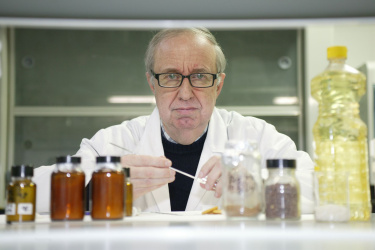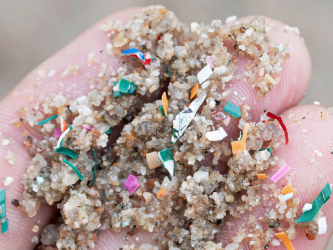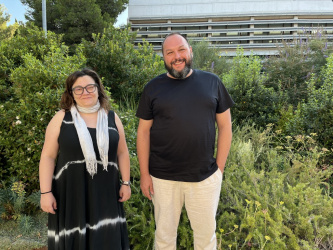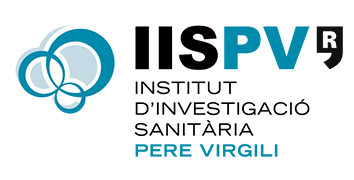Home
Posted on 04-12-2024

Dr. Joaquim Rovira will be the representative of TecnATox in the project H2OSEG, which was recently awarded by Fundación BBVA, in the framework of the Prisms and Problems Program. The project H2OSEG is entitled Challenges in the face of scarcity to achieve water security in Spain, and it will be coordinated by Prof. Sergi Sabater, researcher of the University of Girona and the Catalan Institute for Water Research (ICRA). It was a very competitive call, as only 11 research projects out of 258 applications hav been selected for funding.
Posted on 27-11-2024

Clarivate Plc recently revealed its 2024 list of Highly Cited Researchers™, who are pointed out as influential researchers at universities, research institutes and commercial organizations around the world who have demonstrated significant and broad influence in their field(s) of research. Analysts at the Institute for Scientific Information (ISI)™ have recognized 6,636 Highly Cited Researchers in 2024 from more than 1,200 institutions in 59 nations and regions.
Prof. José L. Domingo, Emeritus Professor of Toxicology and Founder of TecnATox, was again included in that select list, being one of the 99 researchers of Spanish institutions. Prof. Domingo had been already recognized as Highly Cited Researcher in 2014 and 2015. This year, only two investigators from Universitat Rovira i Virgili have been awarded: Dr. Alex Arenas, in Physics, and Prof. Domingo, in the Cross-Field category.
Posted on 20-11-2024

"Each mussel grown in Catalonia contains, on average, 9 microplastics". This is one of the main conclusions of a study led by TecnATox researchers, who studied the presence of microplastics in bivalves cultivated in Catalonia and determined the effects of purification on the levels of these particles in mussels, curly oysters and scallops. This investigation was carried out in collaboration with researchers from the University of Florence (Italy) and the University of Barcelona, and it was funded by the Catalan Food Safety Agency (ACSA) of the Department of Health of the Generalitat de Catalunya. The full version of the report can be accessed on https://acsa.gencat.cat/ca/seguretat_alimentaria/avaluacio-riscos/estudis-avaluacio/estudis-dexposicio/microplastics-en-bivalves/index.html.
Dr. Joaquim Rovira was also recently interviewed by Tarragona Ràdio to talk about this study and the problem of microplastics. The interview can be listened at https://www.tarragonaradio.cat/joaquim-rovira-quan-mengem-musclos-o-ostres-estem-ingerint-microplastics/
Posted on 08-10-2024

That is the reason why in September 19, in Aula Magna at URV School of Medicine (9:30-13:40) an event took place to address different perspectives of the disease. Different research groups of the URV, including several members of TecnATox, currently participate actively in projects that aim to have a greater understanding about the molecular mechanisms of dementia. In addition, various invited researchers addressed these issues.
Posted on 17-09-2024

Improved well-being at work and increased cognitive skills. These are some of the main consequences observed after applying an eight-week programme based on mindfulness to a hundred primary school teachers in Camp de Tarragona. This investigation, led by a research team within TecnATox, provides pioneering results, especially in the neuropsychological field, an aspect that has been little studied until now and in which a significant improvement has been observed after the intervention. The results of the study have been published by the journal Mind, Brain and Education.
More information about this can be found at https://diaridigital.urv.cat/la-practica-de-mindfulness-millora-el-benestar-laboral-i-les-habilitats-cognitives-del-professorat/
Posted on 13-09-2024





